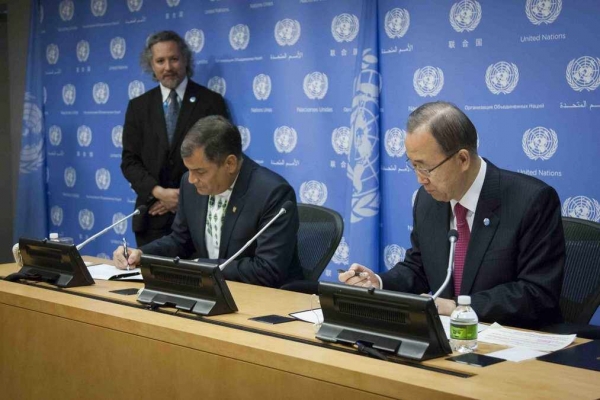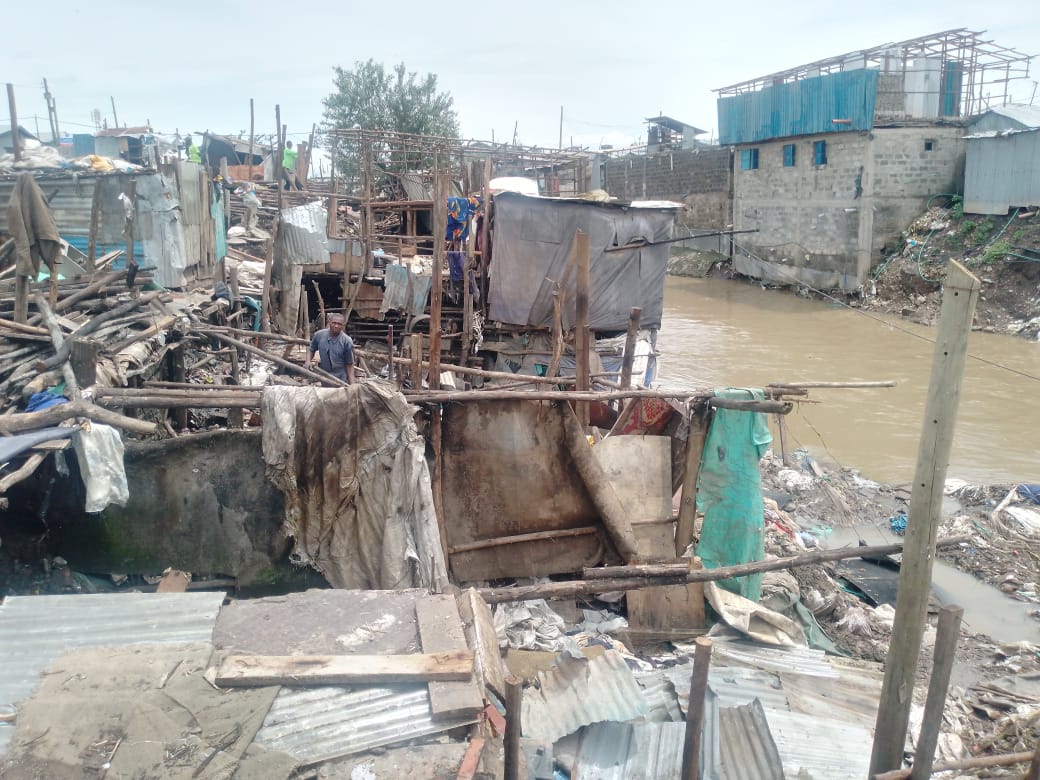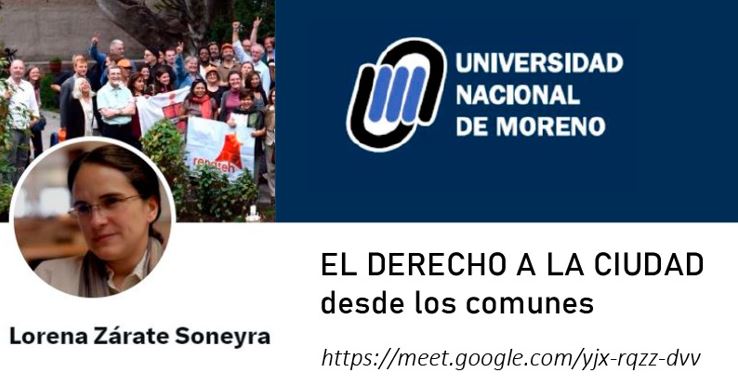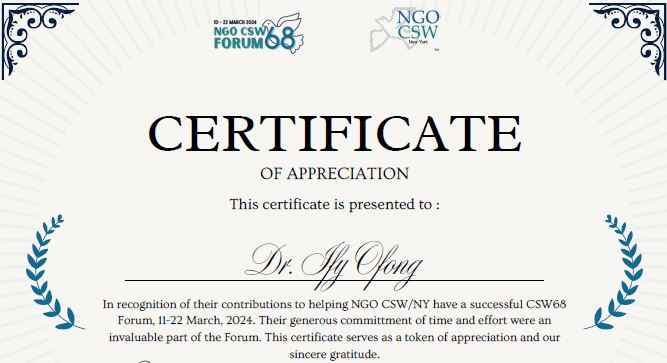
In an appearance at the United Nations in New York,
Ecuadorian President Rafael Correa offered a brief but forceful vision around
economic equity and protecting natural resources, issues he says will need to
receive key attention at this year’s Habitat III conference
on sustainable urbanization, which his country will host in October.
“In Habitat III, we must seek to guarantee the
right to the city, to public services, to basic services, to sustainable urban
development that respects the rights of nature,” he said Tuesday, speaking
extemporaneously in Spanish and enumerating several proposed rights that
advocates hope will be reflected in the New Urban Agenda, the 20-year strategy that
will come out of the conference.
[See: Tension points emerging on details of the New Urban
Agenda]
Ecuador’s president, Rafael Correa, and U.N. Secretary-General Ban Ki-moon sign a formal letter inviting world leaders to attend Habitat III in Quito in October, 12 April. (Loey Felipe/UN Photo)
Correa also highlighted the fact that Ecuador is
the only country in the world with a constitutional right to nature. He
emphasized his hope that the New Urban Agenda reflect the Ecuadorian concept of
“buen vivir” or “living well,” an indigenous concept that has been adopted as
the country’s guiding principle for sustainable development.
In his comments on the right to the city, Correa also touched on
a controversial issue that some hope will be enshrined in the new urbanization
strategy: the “social function” of land. This concept, already a part of
existing legislation like Brazil’s City Statute, stipulates that privately held
land must have a “social” function, such as housing or community development,
and cannot sit idle purely to accrue value for an eventual sale.
Calling such profits “rather illegitimate gains”,
Correa asserted that the topic must be “one of the fundamental principles of
urban policy.” He explained, “This implies fighting the illegal occupation of
land, speculation.”
[See: The challenges of land and inclusion for the New
Urban Agenda]
In his solutions to these “problems”, as he called
them, Correa encouraged financial shared responsibility, citizen participation
in public affairs, and equilibrium between urban and rural development.
He also singled out the needs of “vulnerable populations” as highlighted by
Pope Francis, such as migrants and the disabled. Last year, the pontiff visited
Ecuador and also made mention of Habitat III in remarks at the U. N.office in Nairobi, raising speculation that he
may attend the conference in October.
Correa concluded with an ode to his country’s
natural beauty and biodiversity. “The only danger is that you won’t want to
return to your countries and will want to come live in Ecuador,” he said.
[See: How is
Quito preparing for Habitat III?]
Implementation opportunity
Correa spoke at a news conference withU. N.Secretary-General
Ban Ki-moon, where the two formally invited world leaders to Quito in October
to attend the HabitatIIIconference. Also speaking Tuesday, Ban
underscored the significance of the New Urban Agenda.
“We live in the urban century. When planned, built
and governed well, cities can be massive agents of positive change,” Ban said.
“That is why we need a new vision for urbanization — a New Urban Agenda.”
These were Ban’s first extended public remarks on
HabitatIII. He connected the dots between the urbanization conference and
last year’s historic agreements on sustainable development and climate change.
“Habitat III is a historic opportunity
for change,” he said. “It is happening during the critical first year of
implementing the 2030 Agenda for Sustainable Development. The
success of this ambitious endeavour will be largely determined by how we live
in, design and manage our cities.”
[See all of Citiscope’s reporting on the Sustainable
Development Goals from an urban perspective]
He subsequently underscored the main arguments of
Habitat III Secretary-General Joan Clos, who has argued that cities
are key to implementing the U. N.’s new major initiatives — the Sustainable Development Goals (SDGs) and
Paris Agreement on climate change that came out of the
global climate summit in the French capital in December.
Touching on those two key aspects, Ban said,
“[Cities] can be catalysts for inclusion and powerhouses of equitable economic
growth. They can help us protect the environment and limit climate change.”


